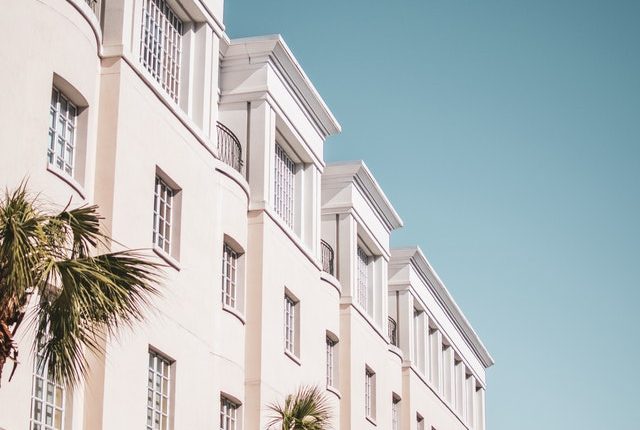| Just the Peaks
This newsletter, at a glance
|
With Phase II reopening underway, American hoteliers express optimism
How the distressed asset class is planning its biggest rebound yet
As the COVID-19 pandemic progresses into its fourth month, more and more businesses are reopening to the public, but not before they assess the damage done.
According to Omnicom, travel, lodging, entertainment, energy, oil, gas, and nonessential retail are among America’s hardest hit sectors. In fact, at the height of the coronavirus shutdown, experts say hotel occupancy dropped below 10%—a dismal number for an already struggling industry. Some hoteliers have been forced to close their doors for good.
Still, others are looking to transform their distressed assets into post-pandemic success stories. Many operators are seeing huge opportunities in the future as consumers’ pent-up demand for travel could trigger a huge tourism boom in 2021. And for hotels that have been capitalized properly, experts say the turnaround will be swift and lucrative.
“If I were to identify any asset class where the distressed opportunity was most extant, and you could actually see a recovery and pro forma, it would have to be hotels,” says Craig Solomon, CEO of Square Mile Capital.
From carnage to cash
First, the bad news.
It’s no surprise that 2020 is projected to be the hospitality sector’s worst year on record. Global shutdowns caused over 70% of hotel workers in the United States to be temporarily furloughed or permanently laid off. Spectrum News NY1 reports that in the month of April alone, 7.5 million U.S. hotel employees lost their jobs. In New York, state and local governments will miss out on an estimated $1.3 billion in tax revenue this year.
Even scarier, The Wall Street Journal predicts that 20% of New York’s hotel rooms—about 25,000—will never return. Despite such gloomy stats, the industry’s top gurus remain positive. While COVID-19 has dramatically transformed the way we live, work, and travel, we should still consider the state of individual assets prior to the pandemic.
“I think the danger in rushing into the market is making sure you can distinguish that which was sick before COVID and that which is sick as a result of COVID,” says Solomon. According to the CEO, Square Mile Capital plans to invest in hotels as early as October, but most definitely in 2021 and 2022.
Hoteliers cut their losses
Cross-country tax revenue, 2020
–$1.3B New York
-$1.9B California
-$1.3B Florida
-$1.1B Nevada
Stats projected by Oxford Economics and the American Hotel &
Lodging Association, as reported by Spectrum News NY1
Bigger tunnel, brighter light
Now, the good news.
When it comes to hotels’ post-pandemic rebound, industry advocates remain confident. With stay-at-home orders lifted and social distancing measures in place, they believe we will have a return to normalcy. However, some say government assistance is critical.
“With the impact to the travel sector nine times worse than 9/11, hotels need support to keep our doors open and retain employees as we work toward recovery,” says Chip Rogers, President and CEO of the American Hotel & Lodging Association.
Other hotel owners in New York City are predicting a sharp turnaround in 2021, with more profound (and lasting) comebacks coming in 2022.
“There is a huge demand for travel. People want to get back out there,” says Alastair Thomann, CEO of two pioneering hotel brands, Generator and Freehand. “Of course, they are a little bit more careful now. Of course, we have to stick to social distancing, we have to be careful. But we can see there is a huge hunger to get back to normal.”
As you formulate your own strategy for successful hotel investment, consider the top 10 ways hotels are transforming their operations for COVID-19 compliance.
What will your stay look like?
The changing face of the hotel industry
- Virtual check-ins. Say goodbye to helpful bellhops and friendly desk clerk greetings. Many hotels are calling for all check-ins and check-outs to be completed virtually.
- Temperature screenings. Hotel guests may be screened at the door. If they register a fever, entry will be denied and reservations cancelled.
- Solo elevator rides. Lines may be significantly longer for folks staying on higher floors. Some hotels are only allowing (1) person, couple, or family per ride.
- Social distancing. To use the gym, spa, or other included amenities, resorts may require reservations. This will prevent crowding and ensure proper social distancing.
- No more buffets. Say goodbye to complimentary coffee and breakfast bars. Until we have a vaccine, many hotels are cancelling these services.
- No more extras. Rooms used to be stocked with extra hangers, pillows, linens, as well as water bottles and minibar goods for purchase. To maximize cleanliness, rooms will be stripped to the bare essentials.
- Deep cleaning. Hygiene has always been a huge concern in hotels. Now, operators are adopting medical-grade cleaning procedures to minimize the risk of coronavirus spread.
- Bagged bedding. Big hotel chains have implemented more secure methods of housekeeping. Guests may be expected to ‘bag’ their own towels, blankets, and sheets, as opposed to tossing them on the floor.
- Pool’s closed. While some hotels may allow for reserved time slots at the spa or gym, others are closing such amenities altogether—including swimming pools.
- Required vacancies. For greater safety, some operators have stopped ‘back to back’ bookings. Rooms remain vacant for 3+ days to ensure cleanliness.
Everest says: we’re feeling hopeful about hospitality




